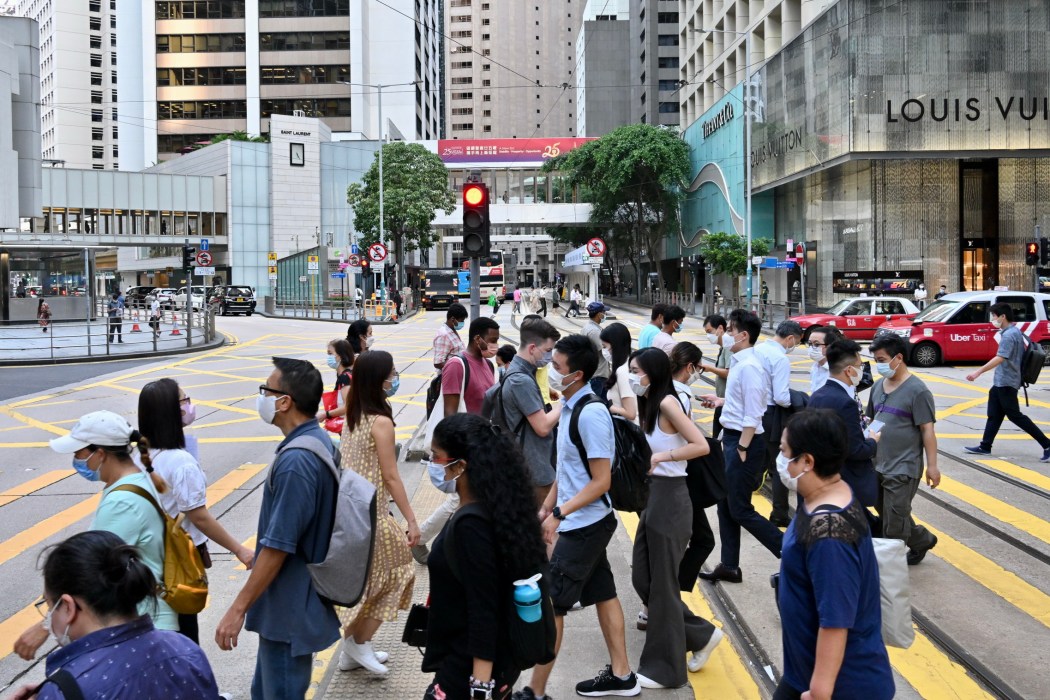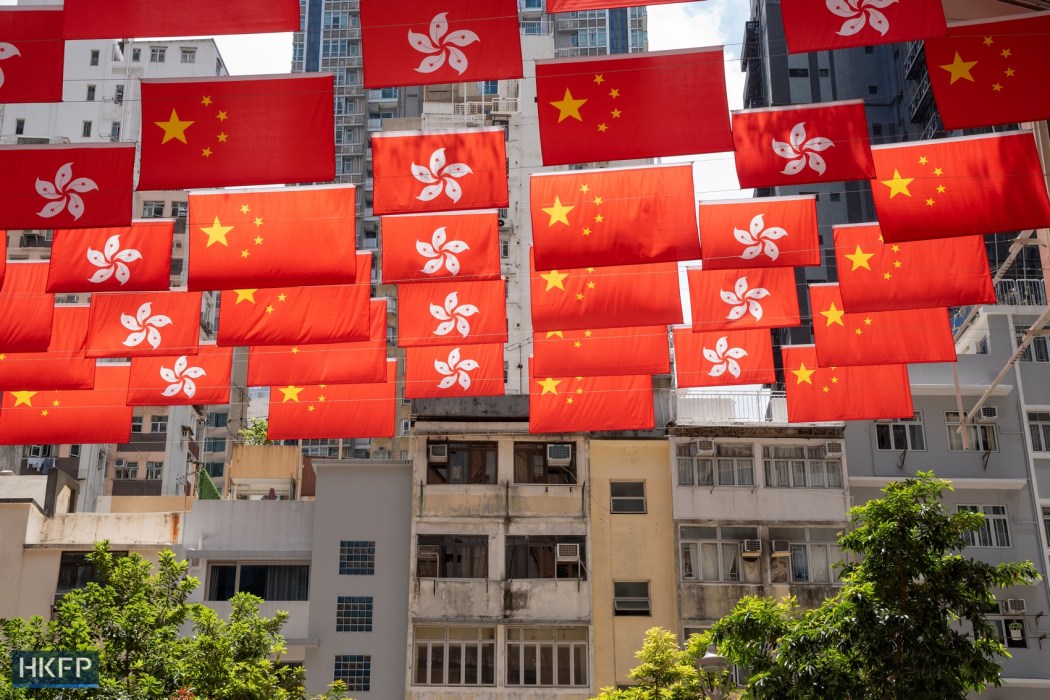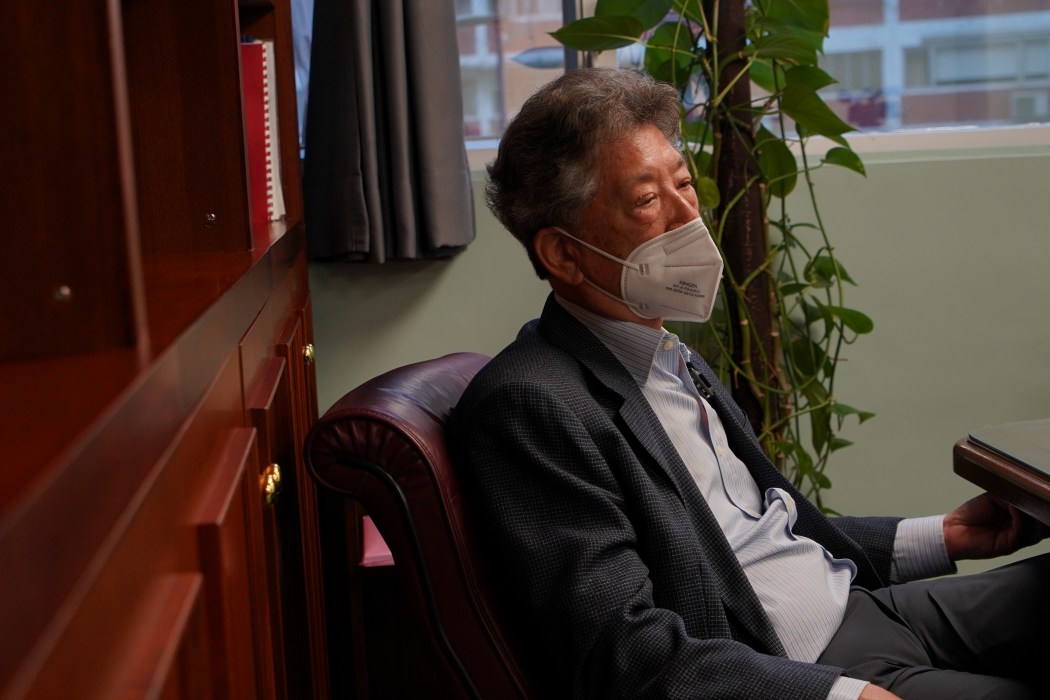Hongkongers’ perceptions of the state of One Country, Two Systems has improved, according to a report commissioned by self-proclaimed non-pro-establishment party Path of Democracy, with almost two thirds of survey respondents considering economic prosperity the most important condition for the city.

But the international community’s appraisal of the territory’s situation has continued to deteriorate over perceptions of declining rule of law and freedom of association and expression, according to the report conducted by the Hong Kong Institute of Asia-Pacific Studies at the Chinese University of Hong Kong.
The One Country, Two Systems principle, under which Hong Kong has been governed since 1997, refers to the allowance of rights and freedoms in the city that are absent across the border in mainland China. It is set to expire in 2047.
Path of Democracy’s “One Country, Two Systems index” now stands at 6.02 on a 10-point scale, representing a 4.8 per cent jump from the party’s previous reading of 5.92 at the end of 2022. The international index, meanwhile, continued to fall from 6.87 in the second half of last year to 6.82 in the first half of the current year.
Economy top priority
Some 1,000 residents who participated in a phone interview were asked to choose what conditions would be favourable to the continuation of One Country, Two Systems from a list of factors including a high degree of autonomy, economic prosperity and stability, a further democratised political system, and national security.
Just under two thirds of respondents, at 63.8 per cent, identified “maintaining economic prosperity and stability” as their most preferred condition.
“Maintaining a high degree of autonomy” came second at 52.4 per cent, followed by “political system democratises further” at 32.4 per cent. “Maintaining national security” came in at 30.1 per cent.

In June 2020, Beijing inserted national security legislation directly into Hong Kong’s mini-constitution – bypassing the local legislature – following a year of pro-democracy protests and unrest. It criminalised subversion, secession, collusion with foreign forces and terrorist acts, which were broadly defined to include disruption to transport and other infrastructure.
The move gave police sweeping new powers, alarming democrats, civil society groups and trade partners, as such laws have been used broadly to silence and punish dissidents in China. However, the authorities say it has restored stability and peace to the city.
National security and economic prosperity were chief among the pro-establishment respondents’ concerns, while moderates valued economic prosperity and a high degree of autonomy. For non-establishment respondents, democratisation of the city’s political system was the most important factor, followed by a high degree of autonomy.

According to the survey, moderates accounted for the majority of respondents, at 78.6 per cent, while non-establishment respondents made up 10.9 percent, and for pro-establishment, 6.7 per cent.
“[W]e still found that people’s perception [of] the current state of 1C2S [One Country, Two Systems] was less than satisfactory. What the majority desired for the long-term continuation of 1C2S was prosperity and stability,” the report read. “While various social groups often displayed different expectations, there is common ground to bring people together.”
International perception
Meanwhile, the international perception of One Country, Two Systems saw a marginal decrease, though perceptions of economic openness still remained high at a score of 9.17.
The report attributed the downturn to the “decoupling of global trade and investment.” Ratings for civil liberties decreased by 0.8 per cent to 6.23, reflecting a continued downward trend, whilst perceptions of democratic development decreased by 1.6 per cent to 5.04.
Speaking to reporters at a press conference on Monday, Path of Democracy convenor Ronny Tong said international assessment scores were derived from western research reports, claiming that western public opinion towards One Country, Two Systems has consistently been “100 per cent negative.”
The party recommended the establishment of a dedicated office to “engage with the western media on a continuing basis to rectify misperceptions,” due to the need to tell a “better [Hong Kong] story.”

Separately, Victor Zheng and Kevin Wong of the CUHK institute published an article in Ming Pao saying that citizens’ trust in the current political system remains low.
A May 2023 study found that 41.9 per cent of respondents aged 18 to 29 did not trust the government, down from the 75.4 per cent in December 2019. But trust has only increased to 10.8 per cent from 4.3 per cent.
For those aged 60 and above, 18 per cent said they trusted the government in 2019, with that figure going up to 48.9 per cent in May this year. Non-establishment respondents’ degree of trust remained low, at 5.1 per cent, up from the previous 4.8 per cent.
Protests erupted in June 2019 over a since-axed extradition bill. They escalated into sometimes violent displays of dissent against police behaviour, amid calls for democracy and anger over Beijing’s encroachment. Demonstrators demanded an independent probe into police conduct, amnesty for those arrested and a halt to the characterisation of protests as “riots.”
Support HKFP | Policies & Ethics | Error/typo? | Contact Us | Newsletter | Transparency & Annual Report | Apps
Help safeguard press freedom & keep HKFP free for all readers by supporting our team

LATEST FROM HKFP
HKFP has an impartial stance, transparent funding, and balanced coverage guided by an Ethics Code and Corrections Policy.
Support press freedom & help us surpass 1,000 monthly Patrons: 100% independent, governed by an ethics code & not-for-profit.










